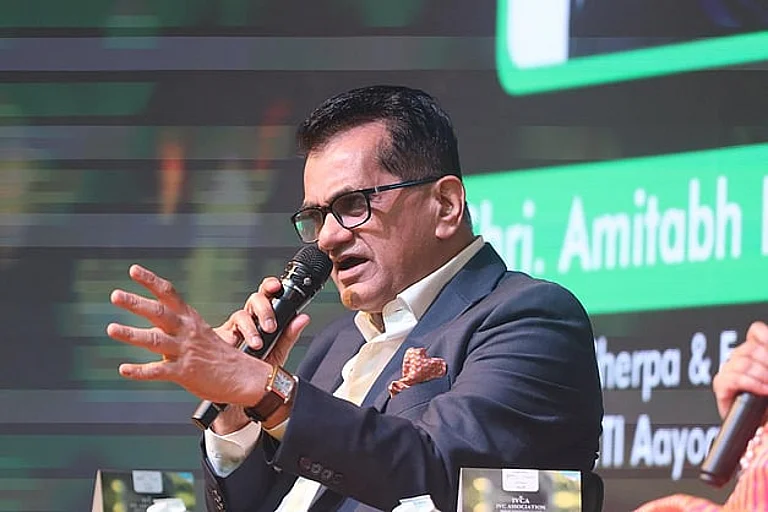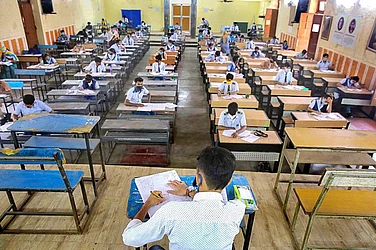
Justice Surya Kant is set to be India’s 53rd Chief Justice of India.
He is the first CJI from Haryana
On October 27, 2025, CJI BR Gavai nominated Kant for the post of CJI after Gavai’s retirement in November.
Justice Surya Kant’s remarkable journey began on the bare floor of a school in Petwar, Haryana—without benches—and led him to one of the most powerful benches of the Supreme Court of India (SC).
Born on February 10, 1962, in a middle-class family in Hisar district, Justice Kant began his education in a village school without benches, sitting on the floor alongside his classmates.
Early life And rise
Justice Kant graduated from Government Post-Graduate College, Hisar, in 1981, and obtained his LL.B. in 1984 from Maharishi Dayanand University, Rohtak. He began practice at the District Court in Hisar in 1984, then moved to Chandigarh in 1985 to practice in the Punjab & Haryana High Court, specialising in constitutional, service and civil matters.
At 38, he became the youngest Advocate General of Haryana on July 7, 2000. He was designated Senior Advocate in March 2001. He was elevated to the permanent bench of the Punjab & Haryana High Court on January 9, 2004. In 2011, he added to his academic credentials, earning an LL.M with First Class First from Kurukshetra University through distance education.
On October 5, 2018, he became Chief Justice of the Himachal Pradesh High Court. On May 24, 2019, he was elevated to the Supreme Court, where he is due to retire on February 9, 2027.
In May 2025, he was appointed Executive Chairman of the National Legal Services Authority (NALSA). This role places him at the helm of India’s legal aid system.
Justice Kant’s Key Judgments
Justice Kant’s judicial work reflects an appreciation for constitutional values, access to justice, prisoners’ rights, and environmental concerns.
Notable judgments include decisions affirming inmates’ right to procreation, including artificial insemination, which recognised the dignity and personal liberty of prisoners and set a precedent for humane treatment.
In the Supreme Court, a significant example is the 2024 constitution bench decision in Aligarh Muslim University (AMU) v. Naresh Agarwa. Here, a seven-judge bench, including Justice Kan, held that AMU, as a statutory university, is not a minority institution under Article 3. The decision has redefined the governance structure, funding options, and the nature of minority status claims for AM and may influence how other statutory universities are classified in the future.
Justice Kant has emphasised that victims’ rights in the criminal justice system are independent, incomparable, and not subsidiary to those of the State. This interpretation elevates the status of victims and may lead to broader procedural protections in court.
In environmental and land acquisition cases, Justice Kant has held that eliminating local water bodies, even with promised alternatives, violates Article 21 (right to life). These rulings direct authorities to prioritize on-site environmental preservation and reinforce sustainable development obligations in project planning and approval.
As a member of benches dealing with national security, surveillance, and civil liberties, such as spyware-related cases, Justice Kant has underscored that the state should not receive unchecked authority in the name of national security. This perspective reinforces judicial oversight and upholds individual rights against excessive state power.
Why Justice Surya Kant’s elevation to Chief Justice of India matters
Justice Kant’s ascension will be the first time a person from Haryana assumes the top judicial office if named Chief Justice of India under the seniority convention.
Given his past, his tenure may strengthen institutional access and transparency. It may also spur reforms in bar association representation, prison reform, and environmental jurisprudence. All these areas are highlighted in his past judgments.
Challenges & expectations
As he moves into senior leadership of the judiciary, key expectations include speeding up the delivery of justice and reducing the backlog. His early career showed sensitivity to delays and prisoners’ rights. Other priorities are deepening legal aid outreach to vulnerable populations, maintaining judicial independence during active debate about appointments and autonomy, and developing jurisprudence on emerging issues. These include digital rights, environmental justice, data privacy, and surveillance, where his past work suggests meaningful engagement.
In a law journal interview, Justice Kant shared his philosophy, encouraging High Court judges to reflect nightly by asking themselves, “Have I repaid the system?”



























